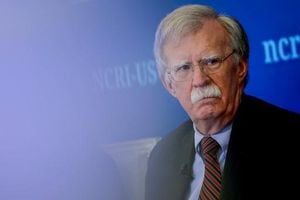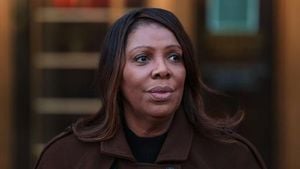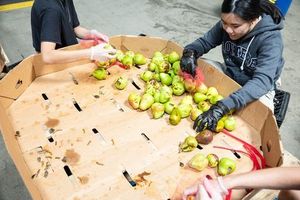Canadian identity has always been a subject of spirited debate, but in the week of October 11, 2025, the conversation took on new urgency. As Prime Minister Mark Carney visited the White House and the Toronto Blue Jays triumphed over the New York Yankees in the playoffs, Canadians found themselves not just watching the headlines, but also reflecting on what it means to be Canadian in a rapidly changing world. According to The New York Times, these events dominated the national conversation, but it’s the deeper questions about Canada’s sense of self and its relationship with its powerful southern neighbor that are coming to the fore.
This renewed soul-searching is captured in a forthcoming book, Elbows Up! Canadian Voices of Resilience and Resistance, edited by Elamin Abdelmahmoud and set for release on October 14, 2025. The collection brings together 30 essays from a diverse group of contributors—Indigenous and immigrant Canadians, Québécois writers, as well as sports and culture experts. The book’s central question is as bold as it is timely: What is Canada, really? And perhaps more importantly, how can the country reassert its independence and identity in the face of American cultural dominance?
Elamin Abdelmahmoud, who also hosts the CBC program "Commotion," explains in his introduction that the book doesn’t offer a simple, declarative nationalism. Instead, he writes, “what emerges... is not a declarative nationalism but something quieter: a steady belief in the sturdiness of an unfinished project.” The essays draw inspiration from the 1968 collection The New Romans: Candid Canadian Opinions of the U.S. but update the discussion for a new era—one where the phrase “51st state” has become part of the political lexicon, thanks to the rhetoric of former U.S. President Trump.
The shadow of American influence is never far from these debates. As Abdelmahmoud notes, the phrase “Elbows up” has become a catchall for concerns about Canadian sovereignty, even before Mark Carney began using it as a rallying cry. “It’s really worth emphasizing that ‘Elbows up’ was not invented by Mark Carney,” Abdelmahmoud told The New York Times. “I think there was a deliberate political intelligence to the ways Mark Carney used the slogan, but it became a catchall phrase on the threats to Canadian sovereignty a few weeks before that.”
The book’s contributors don’t shy away from tough questions. Margaret Atwood, Canada’s most celebrated living author, recalls a 1963 market research survey: “In 1963, when I was working for a market research company, the majority of Canadians in one of our surveys answered ‘No’ to the question ‘Is there a difference between Canada and the United States?’ Though they also answered ‘No’ when asked if Canada should join the United States. It seems they knew there was a difference, but they didn’t know what it was.”
Carol Off, a prominent Canadian journalist, tackles the issue of cultural assimilation head-on. She asks, “Do we have the courage, or even the desire, to resist assimilation?” Off argues that Canadians need to find both—urgently—if they are to preserve their unique culture in the face of the overwhelming pull of American entertainment and media.
Meanwhile, Jen Sookfong Lee, a Vancouver-based author, offers a perspective that is both critical and hopeful. “So what are we fighting for now? Am I fighting for the idea of Gold Mountain, the idealized version of Canada that prompted my grandfather to leave his village at the age of seventeen?” she writes. “I am choosing to believe that Canada can be the country my grandfather once dreamed of, but that I can also be the Canada that I would wish for my children and grandchildren.”
Abdelmahmoud sums up the collection’s message succinctly: “It’s a book that says we can’t ignore the reality of our vulnerability, so how should we think about it?” It’s a question that resonates well beyond the pages of the book, especially as Canada faces new challenges and opportunities on the world stage.
Recent events have underscored these tensions. As reported by The New York Times, Prime Minister Carney’s White House visit was closely watched, with President Trump declaring, “Canadians will love us again,” and Canadian officials navigating the “fine art of avoiding a collision with the president.” At the same time, the Toronto Blue Jays’ playoff victory over the Yankees was celebrated not just as a sports achievement, but as a symbol of Canadian pride at a moment when the country’s relationship with the U.S. is under the microscope.
Beyond politics and sports, Canada’s identity is also being shaped by social and economic forces. The Writers’ Trust of Canada recently honored Raymond B. Blake with the 2025 Shaughnessy Cohen Prize for Political Writing for his book Canada’s Prime Ministers and the Shaping of a National Identity, highlighting the importance of historical perspective in understanding today’s debates. Other finalists included a political biography of Justin Trudeau, a searing examination of residential schools by Tanya Talaga, and a call for healthcare reform from Jane Philpott, a former health minister.
Looking ahead, another urgent book—Breaking Point: The New Big Shifts Putting Canada at Risk by Darrell Bricker and John Ibbitson—is set to be published on October 28, 2025. The title alone suggests that the conversation about Canada’s future is far from over.
Meanwhile, stories from across the country paint a vivid picture of a nation in flux. In Toronto, the discovery of an 11,000-year-old fossil, Torontoceros hypogaeus, during subway construction has sparked fresh interest in Canada’s ancient past. Yet, not all news is cause for celebration. Marineland’s threat to euthanize 30 beluga whales has caused outrage, drawing attention to animal welfare issues that transcend borders.
Economic pressures are also reshaping Canadian life. The Nguyens, a multigenerational family of seven living together in Calgary, have chosen this arrangement to cope with rising housing costs—a trend that is becoming increasingly common in urban centers across the country. As Gerald Narciso reported for The New York Times, endless supplies of homemade pho are an added benefit, but the underlying issue is the growing challenge of affordability.
Canada’s relationship with the U.S. remains complex. The American government’s recent $35.6 million investment in a road project through Alaskan wilderness, tied to a mining venture partly owned by Vancouver-based Trilogy Metals, has raised environmental and sovereignty questions. The project, which would facilitate access to a proposed copper and zinc mine, has been divisive on both sides of the border.
Amidst all this, Canadians are preparing to celebrate Thanksgiving—a moment to reflect not only on personal gratitude, but also on the enduring, unfinished project that is their national identity. Whether in politics, culture, or daily life, the question “What is Canada?” remains as relevant as ever, inviting a chorus of voices to help shape the answer.




